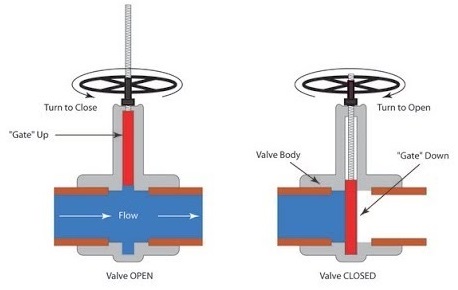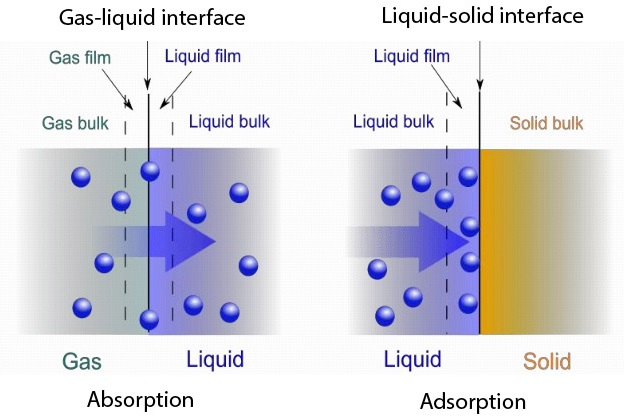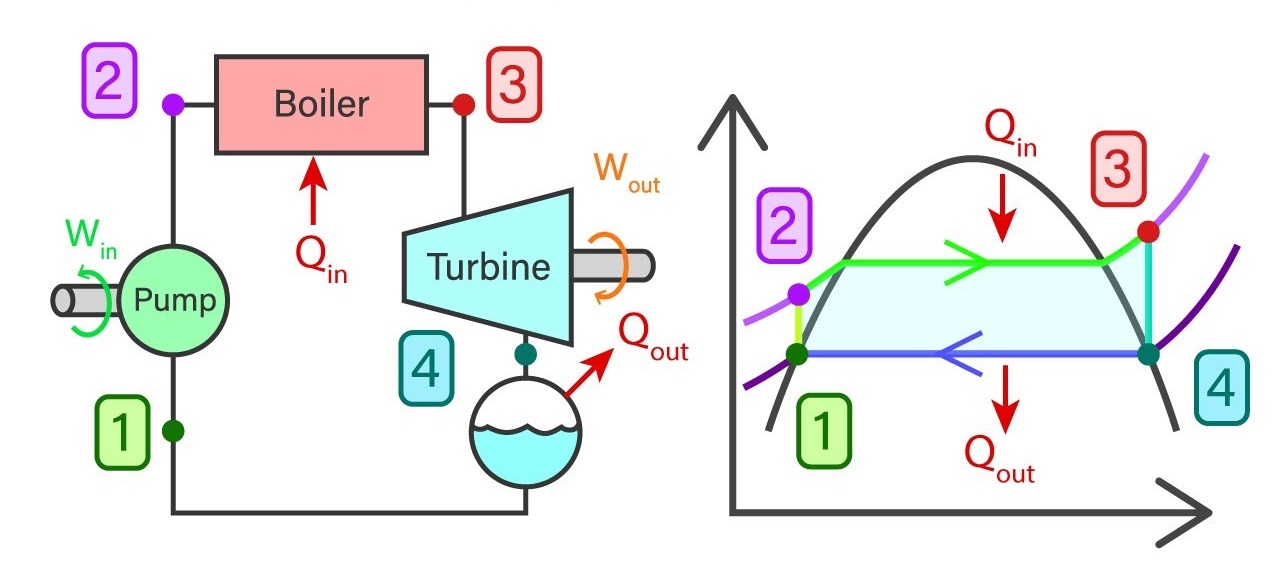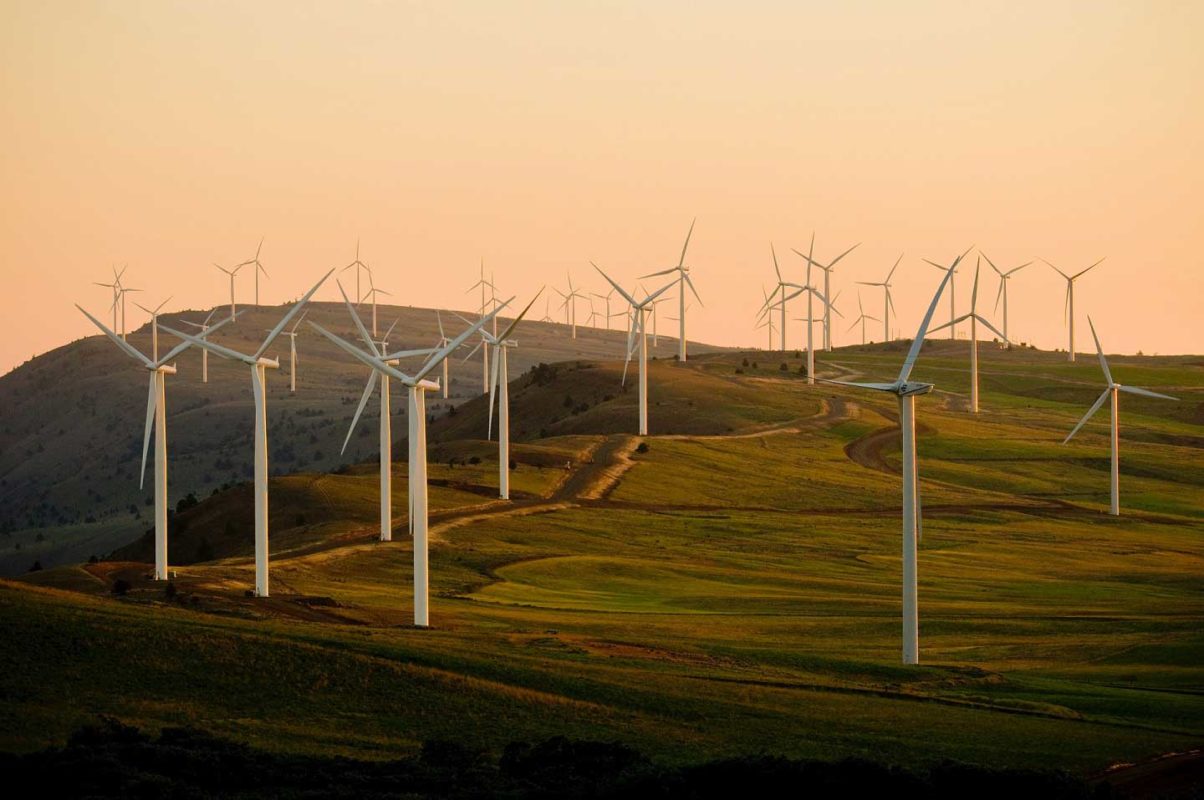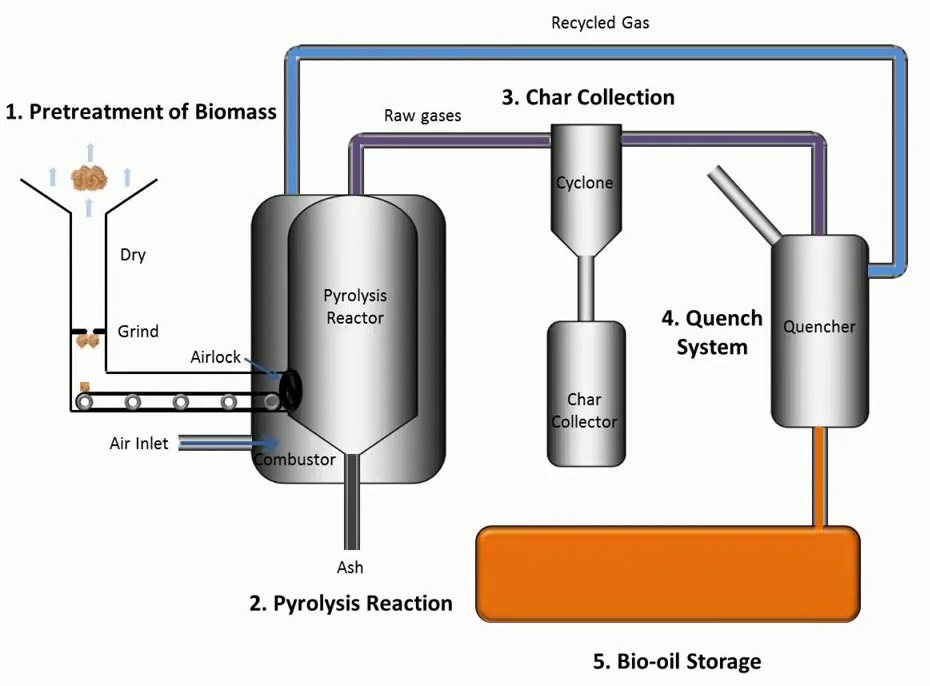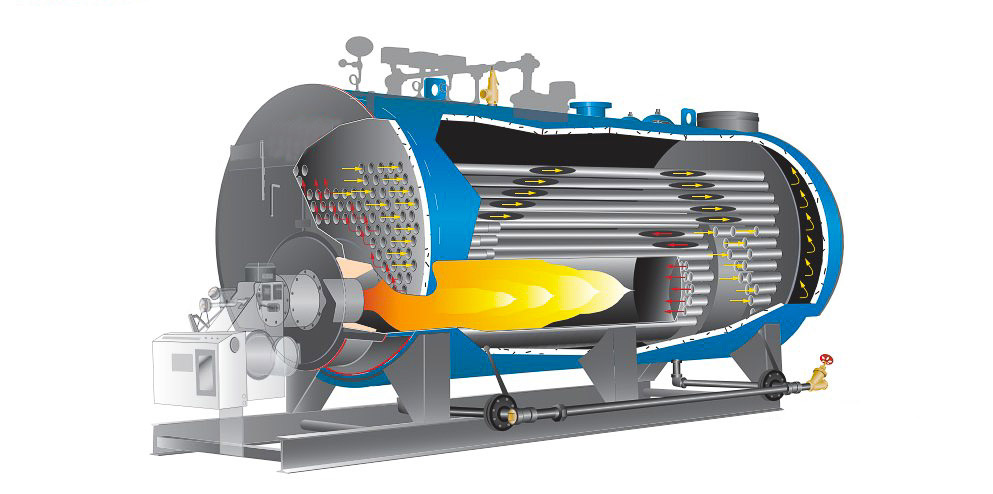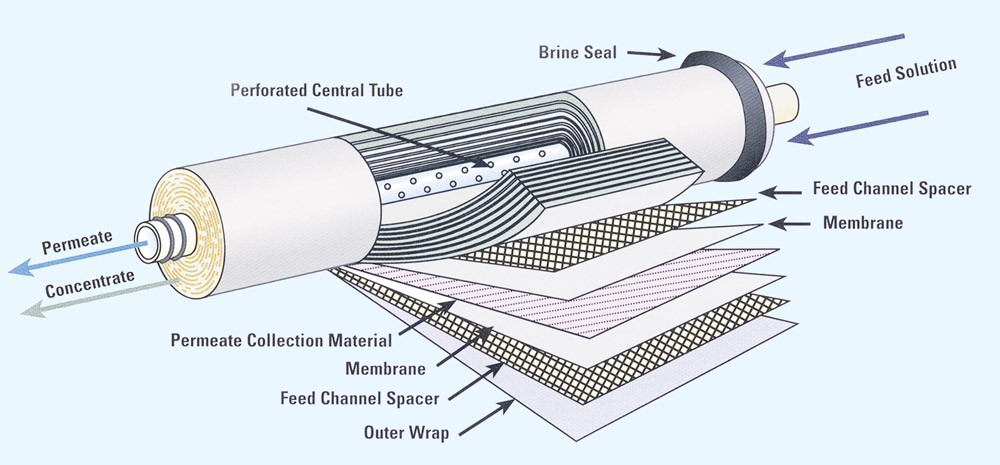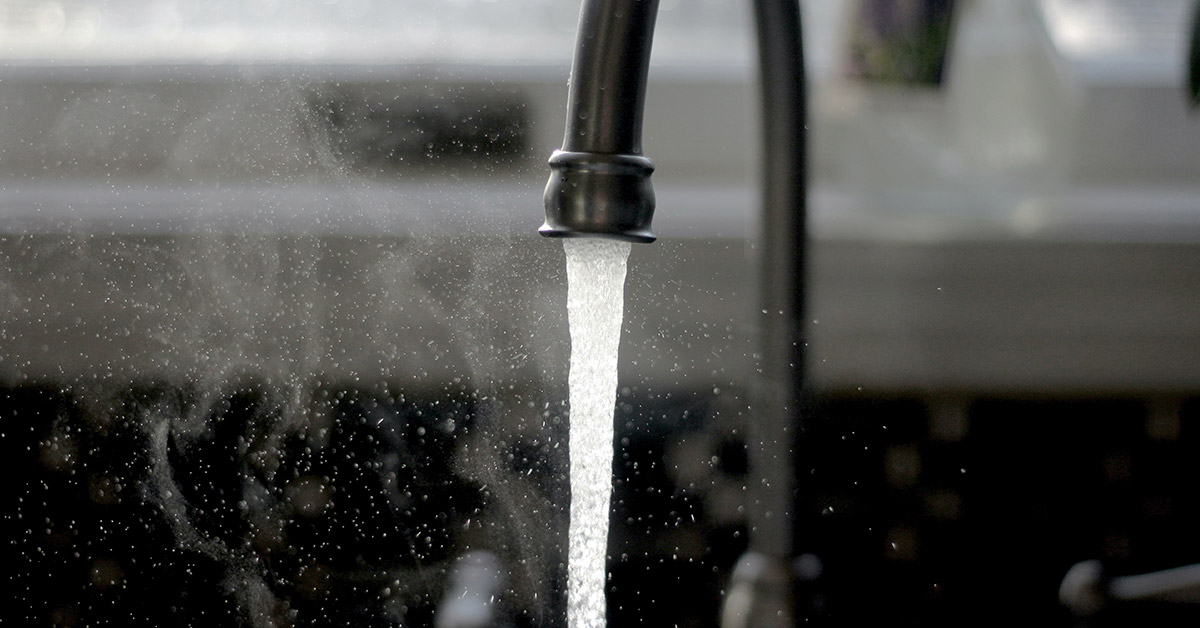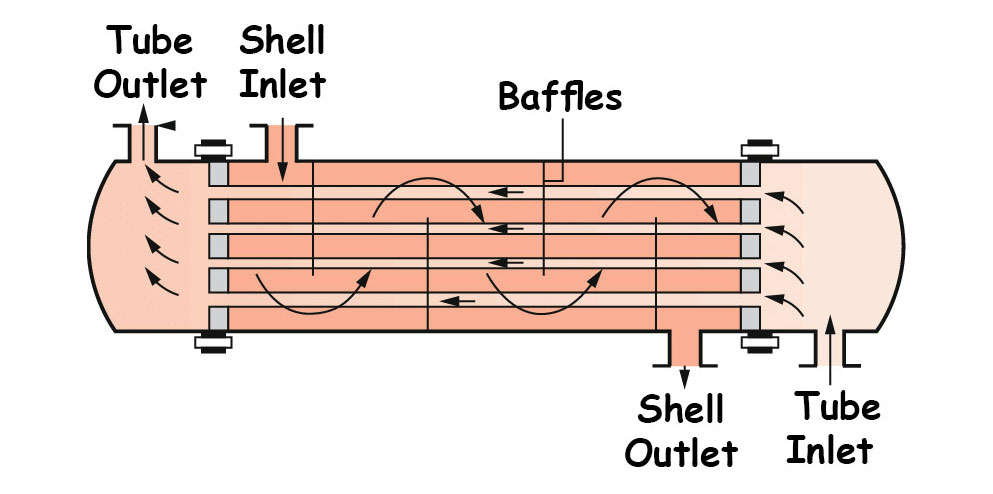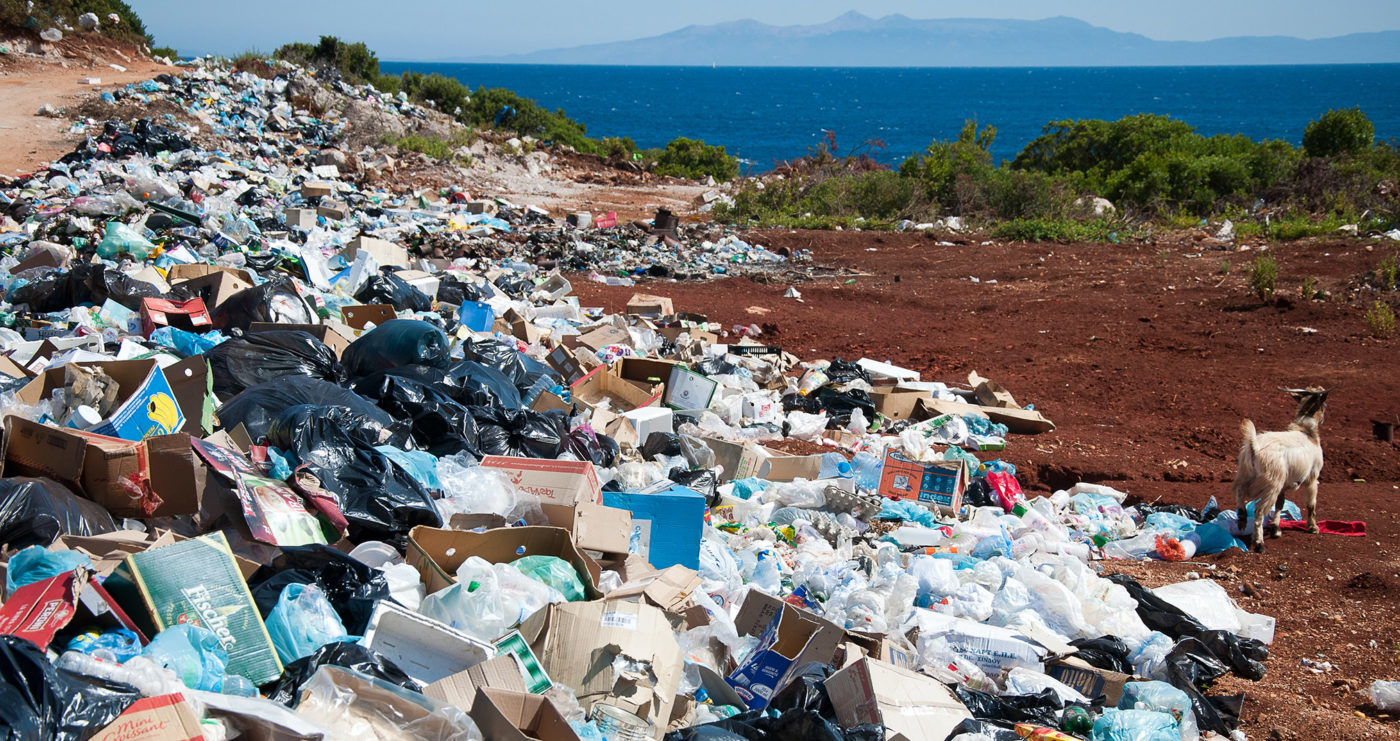The General Function of a valve is to control the flow of a liquid, slurry, or vapor in a piping system. The process takes place by obstructing the fluid pathway utilizing a disc or a seat of the valve. Selecting the ideal valve type regarding the need in the process is quite essential. There are a few types of valves, depending on specific criteria.
Absorption & Adsorption are two major unit operations that have their own differences. Both processes have the ability to extract or catchup solutes from one to another. There are quite a few differences between the processes. In general, absorption will result in penetrating a substance from a solution to another substance.
Introduction The Rankine cycle has become the goto process in the vapor power plants. In contrast to the Carnot cycle, this method of power generation provides more value to the outcome of the process. Its ability to increase the working temperature, providing high-quality steam with less moisture content to the turbine, and much easier handling […]
Renewable energy can be defined as the energy obtained from natural sources or processes that are replenished continuously. Thus, renewable energy resources are not going to deplete after usage.
Biomass pyrolysis is the process of degradation of organic compounds at high temperatures (above 400 C) in an inert atmosphere. It is quite challenging to find such conditions. Therefore pyrolysis performs in an atmosphere where there are negligible amounts of Oxygen.
Having untreated water with certain impurities creates huge problems for its operation. Scaling can reduce heat transfer and thereby increasing the cost of fuel. Corrosion in the boiler can create serious damages to the boiler
Reverse Osmosis is a superior technology to remove dissolved solids, pathogens from water by means of a semi-permeable membrane. Its ability to remove around 95% of the dissolved solids has forced industries to use this more than any other method.
The water treatment process improves the quality of the water. Thus the treated water is more acceptable for some specific end uses such as drinking, irrigation, industrial water supply, or safe removal to the environment.
Heat exchangers are designed to exchange heat between two or more fluids. The heat transfer process can be liquid to liquid, liquid to gas or gas to gas. Depending on the type of heat exchanger, fluids may be separated or directly contacted.
Solid waste is the unwanted, discarded solid materials which arise from human or animal activities. Solid waste management is the process of collecting, transporting, and treating solid waste. This waste generates from industrial, commercial, or residential operations.

